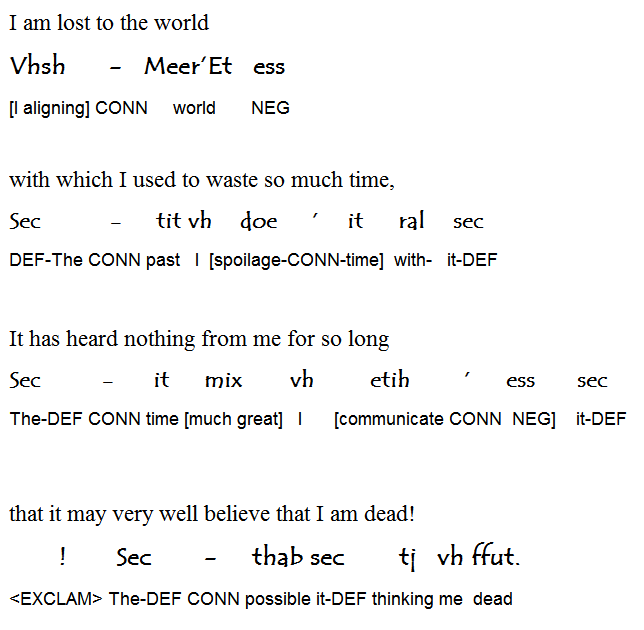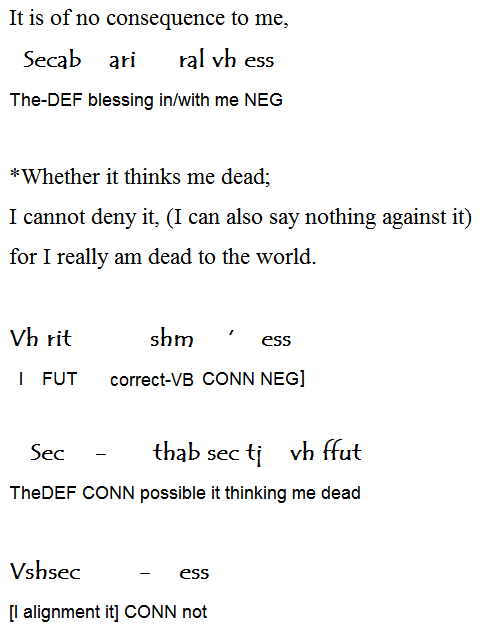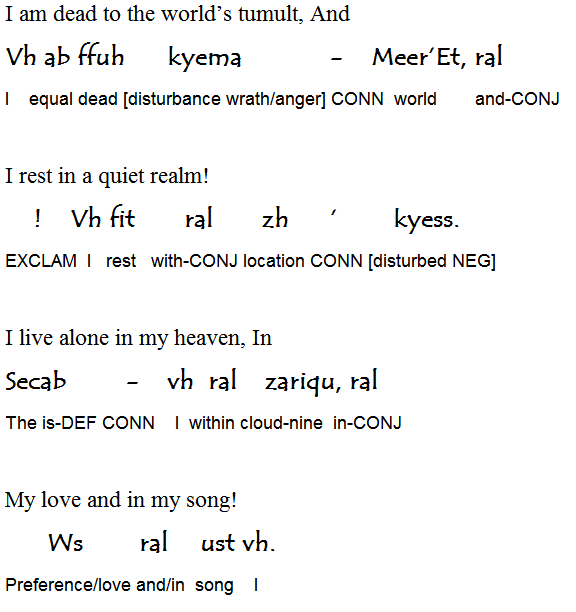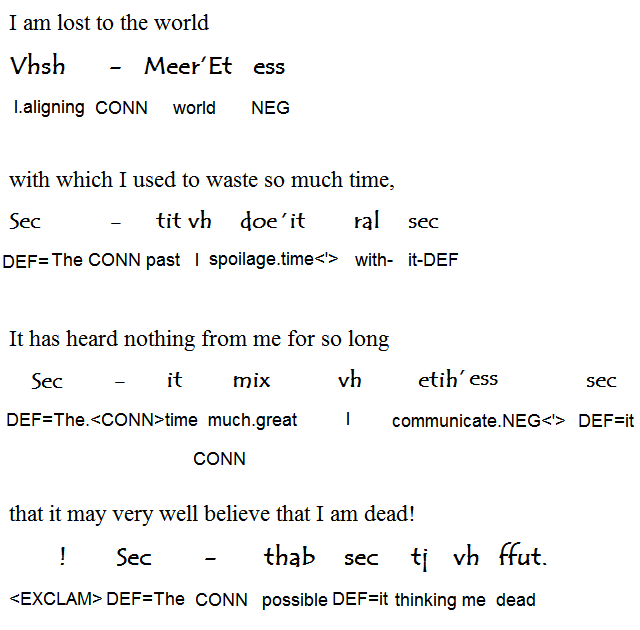At first I was afraid because my lexicon is only up to about 750 words (plus maybe a few hundred more on variation) but it looks like most of the words here I’ve got in the inventory. Some of it I had to go back to the original German to more accurately translate a few lines, and when that is done I provide them below English in parentheses.HoskhMatriarch wrote:How about you do this poem, it seems to have many kinds of grammatical structures: https://telescoper.wordpress.com/2011/0 ... -gekommen/
Vhsh-Meer’Et ess
Sec-tit vh doe’it ral sec
Sec-itmix vh etih’ess sec
!Sec-thab sec tj vh ffut.
Secab ari ral vh ess
Vh rit shm’ess
Sec-thab sec tj vh ffut
Vshsec-ess
Vh ab ffuh kyema-Meer’Et, ral
!Vh fit ral zh’kyess.
Secab-vh ral zariqu, ral
Ws ral ust vh.
=
This was the words broken down as best I could. English is on the top, Etihus is the second line, and the transliteration word-order I attempted to come up with in italics. Still trying to figure out some of the glossing and sort through the terms therein.
I am lost to the world
Vhsh-Meer’Et ess
I [connected/see-eye-to-eye] with world not
with which I used to waste so much time,
Sec-tit vh doe’it ral sec
[During] the past with I spoil/degraded-time with it
It has heard nothing from me for so long
Sec-itmix vh etih’ess sec
[During] long time I communicate-not with it
that it may very well believe that I am dead!
!Sec-thab sec tj vh ffut.
<Exclaim> The-possible it thinking/considering me dead
It is of no consequence to me,
(Es ist mir auch gar nichts daran gelegen,)
Secab ari ral vh ess
The-is/state/existence blessing in/with me nothing
*Whether it thinks me dead;
I cannot deny it, (I can also say nothing against it)
for I really am dead to the world.
Vh rit shm’ess
I will correct not
Sec-thab sec tj vh ffut
The-possible it thinking/considering me dead
Vshsec-ess
I alignment it not
I am dead to the world’s tumult, And
Vh ab ffuh kyema-Meer’Et, ral
I equal dead disturbance-wrath/anger world and
I rest in a quiet realm!
!Vh fit ral zh’kyess.
<Exclaim >I rest within location-disturbed-not
I live alone in my heaven, In
Secab-vh ral zariqu, ral
The-is/state/existence mine within cloud-nine
My love and in my song!
Ws ral ust vh.
Preference/love and/in song mine
*The last three lines of the second paragraph were tricky and took me awhile because information conveyed in Etihus is very exact, and culturally what you do is what you are, and the language structure reflects this. But this was made to be poetic after all.








 Géarthnuns
Géarthnuns


